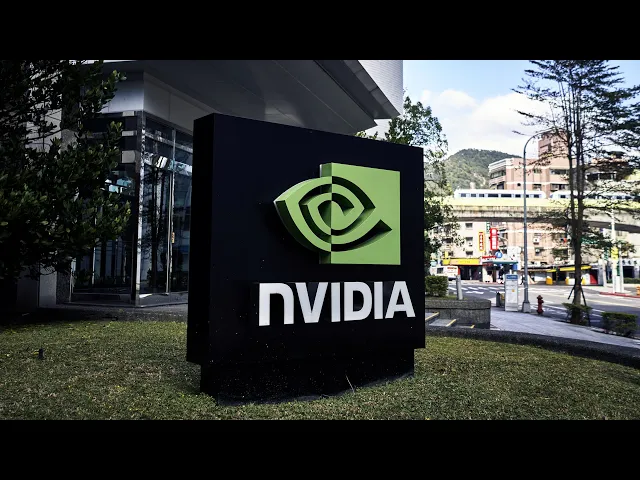Why Nvidia Will Still Lead AI for the Next Decade

Nvidia's decade-long dominance seems unshakeable
The race for AI supremacy has a clear frontrunner, and it's showing no signs of slowing down. Nvidia's market position, with its stock up over 200% in the past year alone, has left competitors scrambling and investors wondering if any company can possibly catch up to this GPU powerhouse. The trillion-dollar question remains: can anyone dethrone Jensen Huang's juggernaut in the next decade?
Key points from the analysis
- Nvidia has built an entire ecosystem around AI computing that goes far beyond just manufacturing chips – their CUDA software platform creates a powerful moat that competitors struggle to overcome
- The company's first-mover advantage has resulted in network effects where AI researchers and developers now primarily build on Nvidia's architecture, creating a self-reinforcing cycle
- While competitors like AMD, Intel, and various startups are developing alternatives, they face the massive challenge of not just matching Nvidia's hardware but replicating an entire software environment that developers trust
The software moat is what truly matters
The most compelling insight about Nvidia's dominance isn't about their H100 GPUs or even their upcoming Blackwell architecture – it's about software. While competitors focus on creating chips with competitive specifications, they're missing the bigger picture: Nvidia's CUDA platform has become the de facto standard for AI development. This software layer is the true competitive advantage.
This matters tremendously because of how the AI industry actually functions. Researchers and developers don't simply want the fastest chip – they want reliability, compatibility, and a thriving ecosystem. When a machine learning engineer encounters a problem with CUDA, they can find countless solutions online from other developers. This ecosystem advantage compounds over time, making it increasingly difficult for newcomers to gain traction even with superior hardware.
The custom silicon wildcard
One aspect not fully explored in the analysis is the potential for custom AI silicon to disrupt Nvidia's position. Companies like Google with their TPUs and Amazon with their Inferentia chips are creating purpose-built AI accelerators optimized for specific workloads. While these custom solutions don't threaten Nvidia's general-purpose dominance, they represent a significant trend toward workload-specific optimization.
Consider Microsoft's partnership with AMD to develop an AI chip
Recent Videos
How To Earn MONEY With Images (No Bullsh*t)
Smart earnings from your image collection In today's digital economy, passive income streams have become increasingly accessible to creators with various skill sets. A recent YouTube video cuts through the hype to explore legitimate ways photographers, designers, and even casual smartphone users can monetize their image collections. The strategies outlined don't rely on unrealistic promises or complicated schemes—instead, they focus on established marketplaces with proven revenue potential for image creators. Key Points Stock photography platforms like Shutterstock, Adobe Stock, and Getty Images remain viable income sources when you understand their specific requirements and optimize your submissions accordingly. Specialized marketplaces focusing...
Oct 3, 2025New SHAPE SHIFTING AI Robot Is Freaking People Out
Liquid robots will change everything In the quiet labs of Carnegie Mellon University, scientists have created something that feels plucked from science fiction—a magnetic slime robot that can transform between liquid and solid states, slipping through tight spaces before reassembling on the other side. This technology, showcased in a recent YouTube video, represents a significant leap beyond traditional robotics into a realm where machines mimic not just animal movements, but their fundamental physical properties. While the internet might be buzzing with dystopian concerns about "shape-shifting terminators," the reality offers far more promising applications that could revolutionize medicine, rescue operations, and...
Oct 3, 2025How To Do Homeless AI Tiktok Trend (Tiktok Homeless AI Tutorial)
AI homeless trend raises ethical concerns In an era where social media trends evolve faster than we can comprehend them, TikTok's "homeless AI" trend has sparked both creative engagement and serious ethical questions. The trend, which involves using AI to transform ordinary photos into images depicting homelessness, has rapidly gained traction across the platform, with creators eagerly jumping on board to showcase their digital transformations. While the technical process is relatively straightforward, the implications of digitally "becoming homeless" for entertainment deserve careful consideration. The video tutorial provides a step-by-step guide on creating these AI-generated images, explaining how users can transform...
